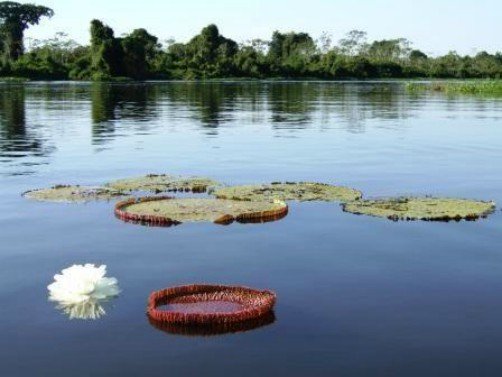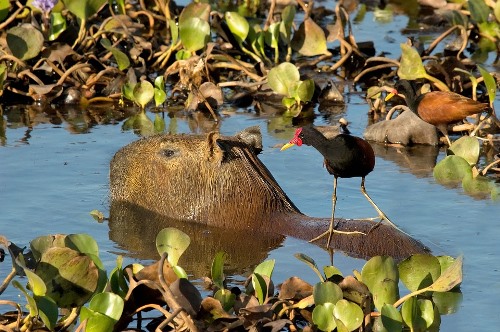Bolivia Ecotourism is a great way to enjoy the beauty of our planet while not contributing to its destruction. Also called socially responsible touring, it gives you the opportunity to experience first hand how our world must have looked before we existed, and as Bolivia is one of the most biodiverse regions on the planet (known as the 10 mega-diverse regions) it one of the best places in the world to get in touch with Earth’s ancient history. The following are some of the many natural gems you can visit in Bolivia's largest state, Santa Cruz in Eastern Bolivia.

Here you can go trekking or rafting, take birdwatching and wildlife observation tours, visit ancient ruins like
El Fuerte
the pre-Colombian fort near
Samaipata
(the
drive to Samaipata
itself is well worth a day-trip) and even experience living history in towns like colonial
Buena Vista
or the
Jesuit Missions
where time seems to have stopped and people still live in much the same way as they did hundreds of years ago.
You can also learn about more recent events and people by literally walking the same paths they did, like the
Che Guevara
trail and by visiting other historical monuments, museums, and sites such as Vallegrande, La Higuera, Charagua, Camiri, and the Bolivian Chaco where the Chaco War against Paraguay took place between 1932-1935.
Lush, pristine, and virtually unaltered, Bolivia’s millions of acres of protected areas and national parks are the perfect place to practice culturally and environmentally conscious touring.
Noel Kempff Mercado,
Amboró
and
Kaa Iya
national parks, in Eastern Bolivia, are some of the most biologically diverse regions on the planet, as is the
Pantanal,
the Otuquis Nature Reserve, the San Matías protected area, and
Puerto Suarez
one of the largest wetland ecosystems on the planet. And once you’ve taken a rain forest cruise on the
Amazon River
on the Reina de Enin riverboat, your outlook on life will be changed forever.
Because even ecotourism alters our environment I would like to keep places like the Lomas de Arena and
Espejillos
a secret, but I won’t for two reasons:

First, because I also happen to believe the only way to preserve Bolivia’s beautiful natural areas is, paradoxically, to give people the chance to experience them in person. I believe your experience will change you in such a phenomenal way that when you leave, you will share with others the importance of preserving these habitats and the species that live within them.
Second, ecotourism is important to Bolivia’s economy and benefits the people who act as your tour guides, and provide your meals, accommodations, and transportation. For some families and entire towns, this is their only source of income. For visitors, this is a chance to learn about, and gain respect for, their local customs and traditions.
So prepare to be amazed! And prepare to be transformed! But the key word here is prepare. Because ecotouring is challenging. You must come with an open mind, be willing to give up some of the comforts you may be used to, and leave behind no evidence of your visit.